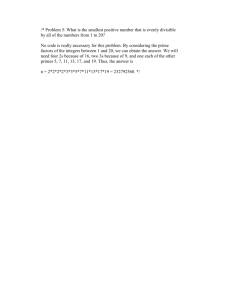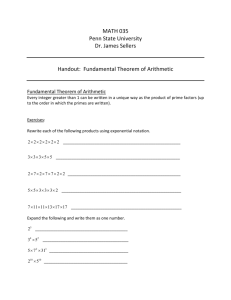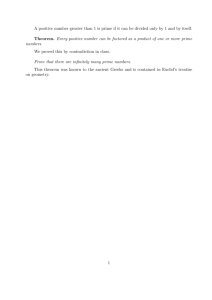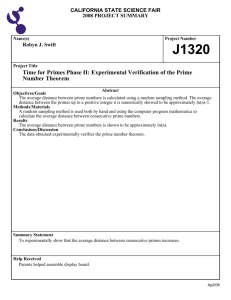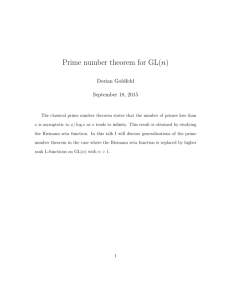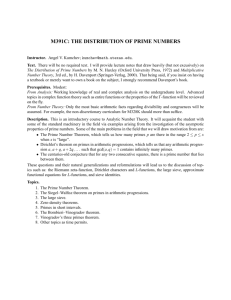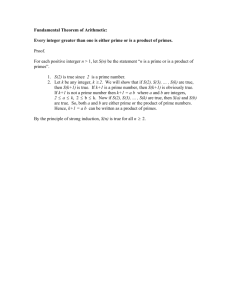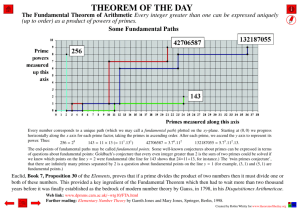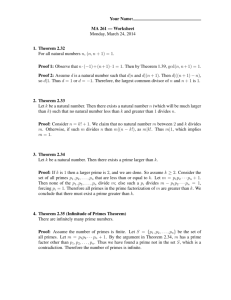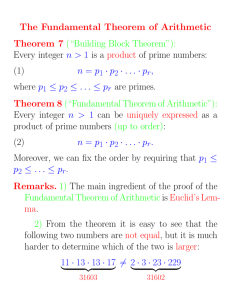In mathematics, and in particular number theory, the fundamental
advertisement
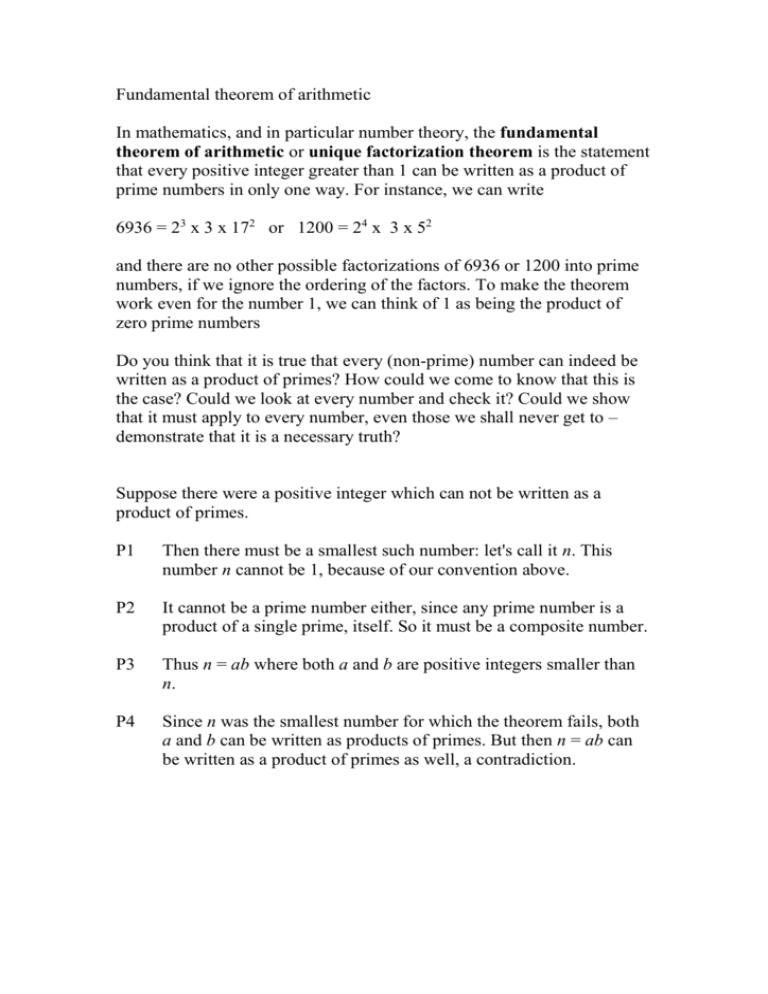
Fundamental theorem of arithmetic In mathematics, and in particular number theory, the fundamental theorem of arithmetic or unique factorization theorem is the statement that every positive integer greater than 1 can be written as a product of prime numbers in only one way. For instance, we can write 6936 = 23 x 3 x 172 or 1200 = 24 x 3 x 52 and there are no other possible factorizations of 6936 or 1200 into prime numbers, if we ignore the ordering of the factors. To make the theorem work even for the number 1, we can think of 1 as being the product of zero prime numbers Do you think that it is true that every (non-prime) number can indeed be written as a product of primes? How could we come to know that this is the case? Could we look at every number and check it? Could we show that it must apply to every number, even those we shall never get to – demonstrate that it is a necessary truth? Suppose there were a positive integer which can not be written as a product of primes. P1 Then there must be a smallest such number: let's call it n. This number n cannot be 1, because of our convention above. P2 It cannot be a prime number either, since any prime number is a product of a single prime, itself. So it must be a composite number. P3 Thus n = ab where both a and b are positive integers smaller than n. P4 Since n was the smallest number for which the theorem fails, both a and b can be written as products of primes. But then n = ab can be written as a product of primes as well, a contradiction.
